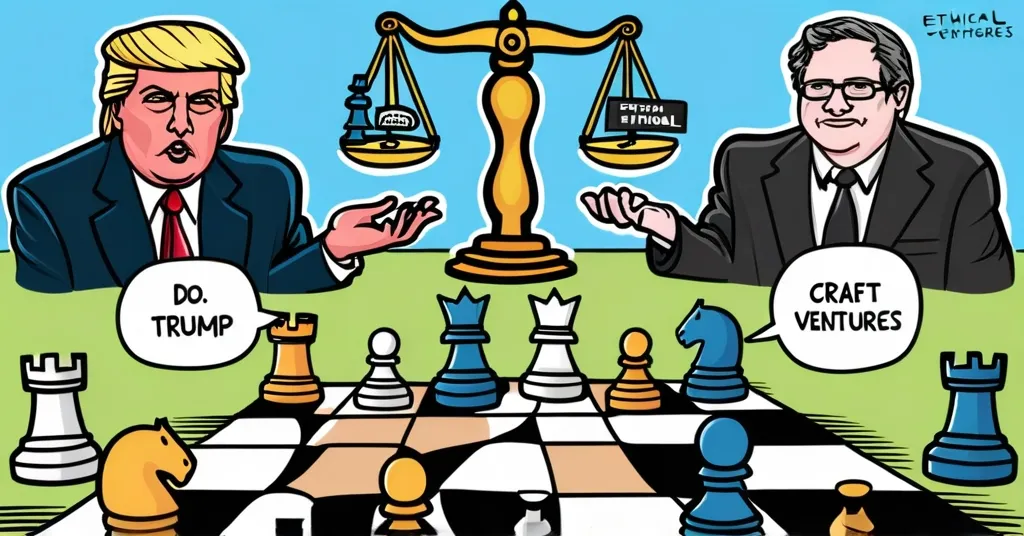David Sacks Demoted in Trump’s Tech Strategy, Michael Kratsios Takes Charge Amid Ethics Concerns

David Sacks Downgraded in Trump’s Tech Strategy Amid Ethical Concerns
David Sacks, initially positioned to take a leading role in AI and cryptocurrency within Donald Trump’s administration, has seen his responsibilities scaled back due to ethical concerns. Instead of spearheading the tech agenda, Sacks will now serve in an advisory capacity. Meanwhile, Michael Kratsios, who previously held the role of Chief Technology Officer (CTO) under Trump, steps in to guide the administration’s tech operations.
- Sacks’ ties with Craft Ventures prevent him from taking a Senate-confirmed role.
- Michael Kratsios assumes responsibility for the administration’s technological initiatives.
- Sacks’ refusal to divest from Craft Ventures raises ethical questions.
- Elon Musk and Vivek Ramaswamy join the administration in key positions.
- Sacks is vocal about the U.S.-China tech rivalry and Big Tech’s global influence.
David Sacks is well-known as a venture capitalist with significant involvement in Craft Ventures, a firm that invests in a variety of tech startups. His decision to hold onto his financial connections with Craft Ventures led to ethical concerns, barring him from a prominent, Senate-confirmed position as AI and Crypto Czar. This situation highlights the ongoing challenge of reconciling private sector interests with public service responsibilities.
Michael Kratsios, taking the helm of the tech strategy, brings his experience as a former CTO to the table. His new focus on operational management was deemed necessary, with a source close to the administration noting, “They realized they needed someone who could run operations full-time.” This shift suggests a pragmatic approach, prioritizing efficient tech management over potential conflicts of interest.
Sacks has not shied away from expressing his views on the competitive U.S.-China tech landscape and has been critical of Big Tech’s activities in China. His stance, encapsulated in his remark, “In the long term, Big Tech will have to pick a side,” reflects the broader geopolitical tensions influencing tech policies. Moreover, his tenure at Twitter was marked by a push for innovative revenue streams, which stirred internal debates.
High-profile figures like Elon Musk, the CEO of Tesla, and Vivek Ramaswamy, a former pharmaceutical executive, have also been appointed to influential roles within Trump’s administration. Tasked with leading the Department of Government Efficiency, their inclusion signals an emphasis on integrating tech-centric perspectives into governmental frameworks.
The ethical dilemmas surrounding Sacks’ relegation bring to light critical discussions about the interplay between public duties and private investments. This presents a broader inquiry into the future directions of tech leadership in government and how the U.S. positions itself in the global tech arena.
Key considerations include:
- The implications of maintaining business interests while holding public office.
- How Kratsios’ focus on operations will shape tech policies and innovations.
- The potential directions for tech policy with figures like Musk and Ramaswamy involved.
The reorganization of Trump’s administration underscores the delicate balancing act between fostering tech innovation and navigating ethical quandaries. As these leadership roles evolve, the impact on tech policy and the U.S.’s global standing in technology will become more evident.



